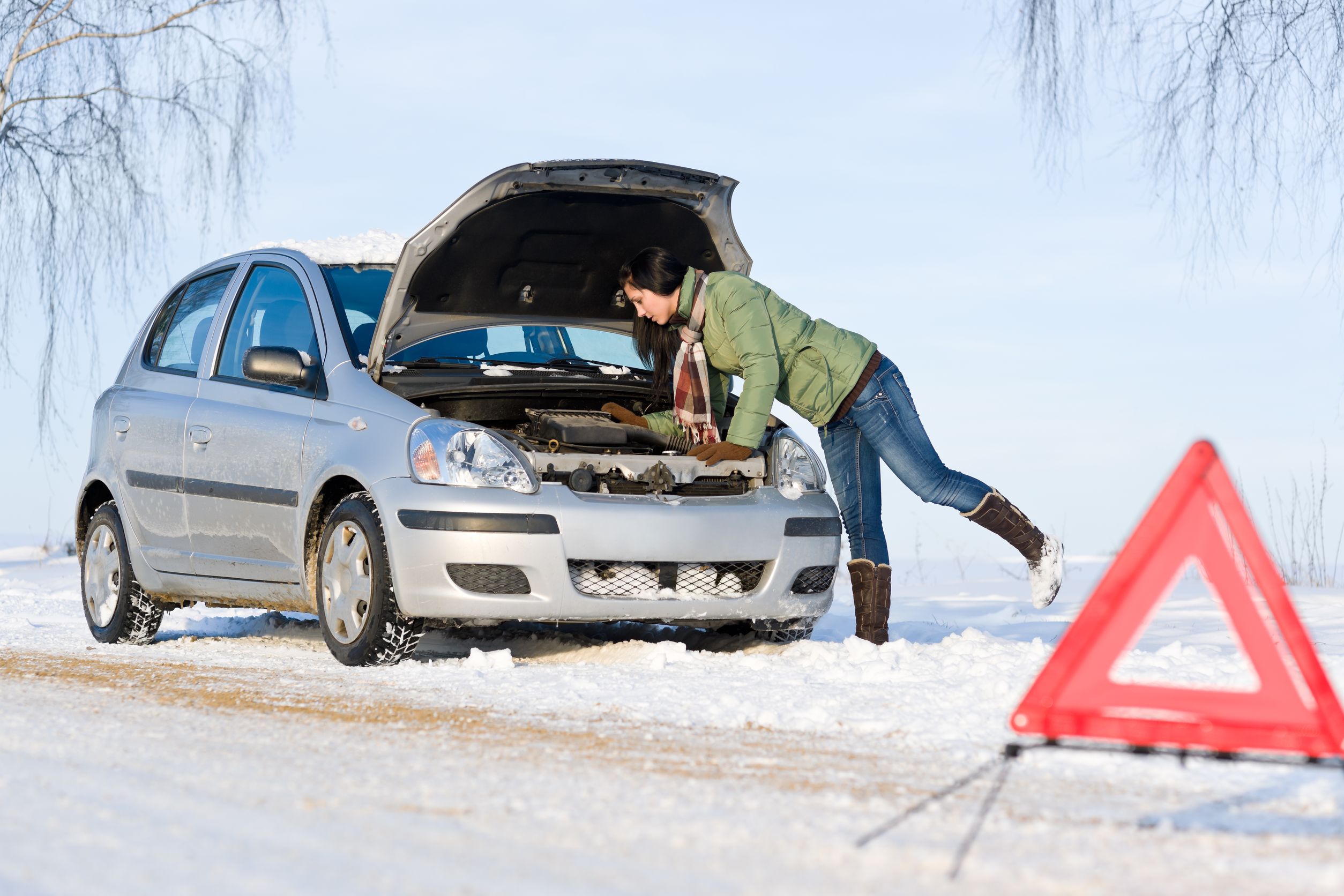Winterizing Your Vehicle
Winterizing your vehicle is a wise idea! Taking an hour or two out of your day to have your vehicle checked is all it takes to have peace of mind. The time spent now will avoid the cost and hassle of a breakdown during severe weather.
Here is a checklist to follow when winterizing your car this season:
1. Have the battery and charging system checked for optimum performance.
2. Clean, flush and put new antifreeze in the cooling system.
3. Make sure heaters, defrosters and wipers work properly.
4. Check the tire tread depth and tire pressure.
5. Be thorough about changing the oil and filter at recommended intervals.
6. If you’re due for a tune-up, have it done before winter sets in.
7. Have the brakes checked. The braking system is the vehicle’s most important safety item no matter what time of year.
8. Have the exhaust system checked for carbon monoxide leaks.
9. Keep your gas tank at least half full at all times to decrease the chances of moisture forming in the gas lines and possibly freezing.
10. In your trunk, make sure to include an ice scraper and snowbrush, jumper cables, flashlight, flares, blanket, extra clothes, candles/matches, bottled water, dry food snacks and needed medication.
Preparing yourself and your vehicle will insure safe travels this winter.
For more information on auto insurance, call C.H. Edwards, Inc. and one of our representatives will be happy to help you.
Be safe!
Written by: Amanda Haase
Common Teen Driving Mistakes
Fact: Teen drivers are nearly four times as likely to crash when on the road. Below are some of the most common mistakes made by teen drivers:
Peer Pressure – friends encouraging the driver to turn up the music, or violate other family rules, to distract the driver.
Drinking and Driving – In 2013, 17 percent of drivers ages 16-20 were involved in fatal car crashes, due to intoxication. Do not drink and drive!
Distractions – Distractions while driving are more than just cell phones. Talking to passengers, using navigation systems, and applying makeup while driving all count as distractions.
Failure to wear a seatbelt – Seatbelts save an estimated 12,174 lives each year. 55 percent of teens killed in car crashes were not wearing seat belts. Buckle up! It is the law!
Underestimating the risks that come with driving – Teens often underestimate the risks and responsibilities that come with getting behind the wheel, making them feel invincible. This can lead to careless, dangerous mistakes.
Driving at night – A teen driver’s chance of being involved in a deadly car crash doubles, when they travel at night. This can be due to limited visibility and other dangers on the road.
Having multiple passengers – When your teen drives with multiple passengers in their car, their risk of being involved in a car crash increases 44% due to possible increased distractions, caused by the passengers.
Loud Music – “Cranking up the tunes” and adjusting the radio can cause major distractions while driving.
Overestimating their driving abilities – Overestimating their driving abilities, such as what speed they are comfortable at, as well as maneuvering on the road, can be dangerous to them and other drivers.
Fast or reckless driving – Going too fast, tailgating, and road rage are often primary factor in teen crashes.
Although these facts may seem unfortunate, talk to your son or daughter about these dangers before this upcoming winter driving season. It is Important to protect them and others when they are behind the wheel.
If you have any further questions regarding the information provided or you have a new teen driver that you are looking to insure, give C.H. Edwards a call today at 516-249-5200 for a free no obligation quote for the whole family! Please visit our website at www.chedwards.net.
Let us help you get covered! Please drive safely.
Written by: Amanda Haase
It’s Election Day! Are You Registered To Vote?
It’s Election Day! Are you registered to vote? If not, make today the day you register.
In order to participate in New York State or federal elections, you must register to vote either through Department of Motor Vehicle or New York Board of Elections.
In order to vote in New York State you must:
• Be a U.S. citizen (or born in Puerto Rico, Guam, or U.S. Virgin Islands).
• Be 18 years old by December 31st of the year that you register.
• NOTE: You must be 18 years old by the date of the election in order to vote.
• NOT be in prison or on parole for a felony conviction.
• NOT be adjudged mentally incompetent by a court.
• NOT claim the right to vote elsewhere.
Note that in order to be eligible to vote, you must register 25 days before the next election. In New York, you can register to vote online, in person, or by mail. You cannot register to vote by phone.
For more information on voting and registering to vote visit http://www.dmv.org/ny-new-york/voter-registration.php.
Written by: Amanda Haase
8 Things To Know About Umbrella Policies
Many consumers are often confused or unsure whether or not to buy an umbrella insurance policy. You may be asking yourself, what is an umbrella policy and how will it cover me?
Well, look no further here are eight things that you should know about personal and commercial umbrella policies are:
1. A personal umbrella provides an additional layer of liability coverage above and beyond the liability limits in an auto and homeowner’s policy.
2. The personal umbrella policy is extremely undersold. The vast majority of people with personal exposures do not have an umbrella policy, when they really should.
3. Personal Umbrella policies are on of the most inexpensive coverage’s available.
4. An insured does not need to be a millionaire to have a $1million personal umbrella policy. You don’t need to own a home, be married or even have children. An umbrella policy is simply extra coverage to protect you.
5. Personal umbrella policies are not something most people buy; it is something they have to be told about. Most clients will not ask for an umbrella policy. The agent has to proactively educate the client and let them know what it is.
6. Personal Umbrella polices can be sold as a monoline policy, that means by itself. While Umbrellas are often tied to auto and home policies, there are companies that offer standalone umbrellas at a very reasonable price.
7. A commercial umbrella policy provides additional liability limits above and beyond the primary limits in commercial general liability and commercial auto policies.
8. One key issue with a commercial umbrella policy is whether it provides defense costs inside or outside the policy limits. In cases of large and sever claims, it is important to have defense outside the policy limits so that the policy limits are preserved to pay for the claim.
If you have any questions or would like to obtain a free quotation on a personal or commercial umbrella policy, give C.H. Edwards a call today at 516 -249-5200 or visit our website at www.chedwards.net and one of our umbrella specialist will be happy to assist you .






